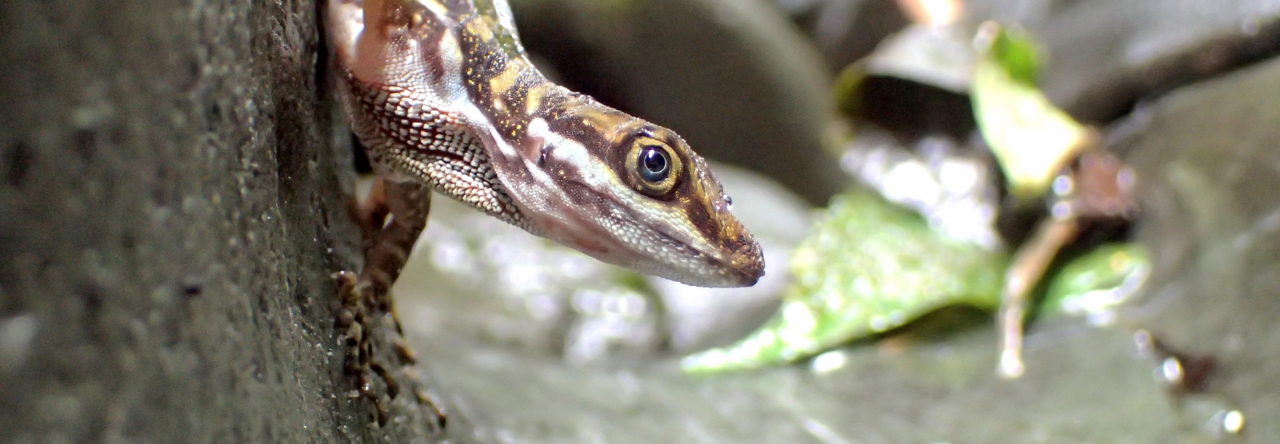
Christine Rohlf from the University of St. Thomas presents her research on immune-performance tradeoffs.
Traveling to SICB is always exciting, but like any trip through crowded airports, hotels, and convention centers, you’re more likely to get sick during your travel if you’re not careful. As we all know, getting a travel cold (or worse) makes you feel terrible and certainly doesn’t make you want to run on a treadmill! The same is likely true in wild animals, including anoles. Mounting immune responses is energetically expensive, but so are other things that lizards have to do, like forage, escape predators, and process food. So, does an increasingly large immune challenge decrease a lizard’s ability to perform? Christine Rohlf, an undergraduate student in Jerry Husak’s lab at the University of St. Thomas, wanted to find out in green anoles.
Christine designed a laboratory experiment to determine whether two types of immune challenge, alone and in combination, decreased bite-force performance, sprint speed, or endurance capacity compared to controls. Some lizards received two sequential injections of lipopolysaccharide (LPS), some received a skin wound with a biopsy punch, and some received both. LPS is a signal on gram-negative bacteria that, when injected, tricks the body into thinking it is infected with bacteria. So, you get an immune response, but you don’t actually get an infection.
Surprisingly, none of the immune challenges affected sprint speed or endurance compared to controls. Although the lizards were not calorie-restricted, they were on a modest diet, meaning that energy was limited, but clearly not enough to make a difference. Apparently these two immune challenges aren’t as costly as we thought. The only effect that Christine found was that the second LPS injection significantly decreased bite force. Because bite force is likely the least energetically expensive trait of those measured (imagine running until you’re exhausted versus biting into a hard piece of French bread), Christine suspects that the decrease in bite force was due to a lack of motivation while feeling sick. Future work with calorie-restricted lizards should tell us if mounting an immune challenge is a significant cost to anoles.
- Exercise and the Immune System in Green Anoles - January 6, 2021
- Exercise Can Kill You (If You’re an Anole)! - May 10, 2019
- Leptin Mediates Tradeoffs in Green Anoles - February 2, 2019


Laura Jones
Very interesting!